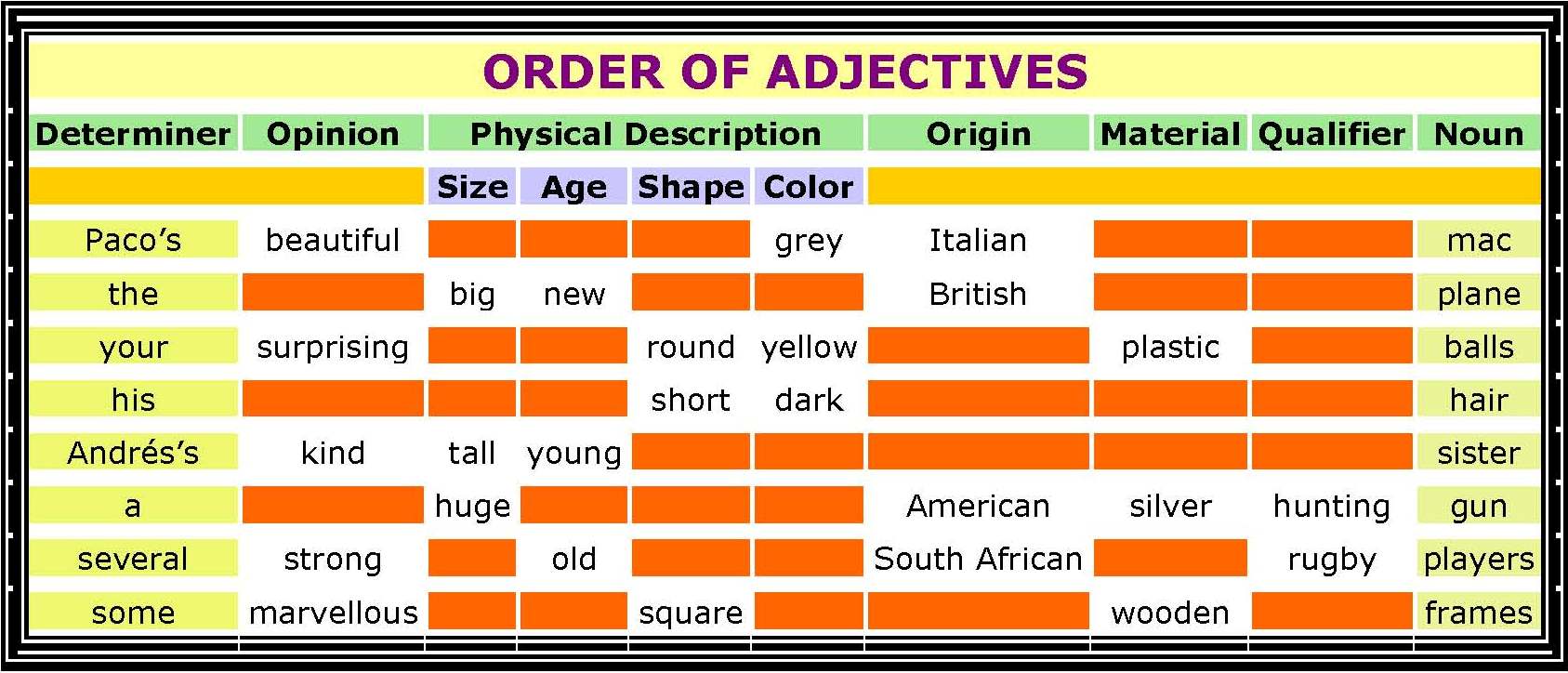2.2 Paco's was wearing a beautiful grey mac
As we know, the English language is far more fixed when dealing with word order than other languages. That being so, when adjectives are used in attributive position, that is, in front of the nouns they modify, they normally follow a concrete order. Have a look at the chart below to learn what order the most frequently-used adjectives in English follow according to type. If you can't see it properly, click on it and get the file.
e.g.: Paco bought a beautiful (opinion) brown (color) mac
 |
If you want to study it by means of a presentation, you can download a good one here. And to practice it, there are plenty of exercises on the web, we have chosen these three ones: Exercise 1, Exercise 2.
If you click here, you will be able to get an mp3 file and its tapescript which includes a brief explanation of the correct order of adjectives in English.
|
|
1. Tsunamis are natural hazards.
(terrible, huge)
2. In the bar, he listened to a song.
(American, rhythmic, romantic)
3. Paco bought a tennis racket two months ago.
(French, nice, blue, graphite)
4. He met an barman.
(African, tall, middle-aged, interesting)
5. Paco slept on a mattress.
(new, wool, huge, comfortable)
 |
| By Anonymous. Public domain |